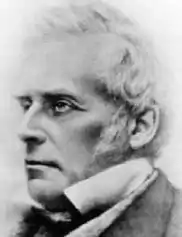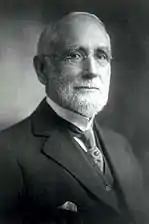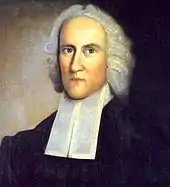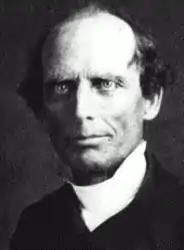IntroductionEvangelicalism (/ˌiːvænˈdʒɛlɪkəlɪzəm, ˌɛvæn-, -ən-/), also called evangelical Christianity or evangelical Protestantism, is a worldwide interdenominational movement within Protestant Christianity that emphasises the centrality of being "born again", in which an individual experiences personal conversion; the authority of the Bible as God's revelation to humanity; and spreading the Christian message. The word evangelical comes from the Greek (euangelion) word for "good news". The theological nature of evangelicalism was first explored during the Protestant Reformation in 16th century Europe. Martin Luther's Ninety-Five Theses in 1517 emphasized that scripture and the preaching of the gospel had ultimate authority over the practices of the Church. The origins of modern evangelicalism are usually traced to 1738, with various theological streams contributing to its foundation, including Pietism and Radical Pietism, Puritanism, Quakerism, Presbyterianism and Moravianism (in particular its bishop Nicolaus Zinzendorf and his community at Herrnhut). Preeminently, John Wesley and other early Methodists were at the root of sparking this new movement during the First Great Awakening. Today, evangelicals are found across many Protestant branches, as well as in various denominations around the world, not subsumed to a specific branch. Among leaders and major figures of the evangelical Protestant movement were Nicolaus Zinzendorf, George Fox, John Wesley, George Whitefield, Jonathan Edwards, Billy Graham, Bill Bright, Harold Ockenga, Gudina Tumsa, John Stott, Francisco Olazábal, William J. Seymour, and Martyn Lloyd-Jones. The movement has long had a presence in the Anglosphere before spreading further afield in the 19th, 20th, and early 21st centuries. The movement gained significant momentum during the 18th and 19th centuries with the Great Awakening in Great Britain and the United States. there were an estimated 619 million evangelicals in the world, meaning that one in four Christians would be classified as evangelical. The United States has the largest proportion of evangelicals in the world. American evangelicals are a quarter of that nation's population and its single largest religious group. As a transdenominational coalition, evangelicals can be found in nearly every Protestant denomination and tradition, particularly within the Reformed (Continental Reformed, Anglicanism, Presbyterian, Congregational), Plymouth Brethren, Baptist, Methodist (Wesleyan–Arminian), Lutheran, Moravian, Free Church, Mennonite, Quaker, Pentecostal/charismatic and non-denominational churches. (Full article...) Topics |
List of denomination topics |
|---|
Music topics
Biographies
- See List of evangelical Christians for a list of people who are notable due to their influence on the popularity or development of evangelical Christianity or for their professed evangelicalism.
Related portals
Megachurches
Education topics

Media topics
Sherwood Pictures is an American independent Christian film production company in Albany, Georgia, United States. It is unusual among production companies in that it is a ministry of a local church, Sherwood Baptist Church. The company uses mostly volunteers in their productions. It was founded in 2003 by Alex Kendrick, the associate pastor of media for Sherwood Baptist Church with $20,000 in donations.
The company's first film was Flywheel (2003), but it is best known for Facing the Giants (2006), Fireproof (2008), the highest-grossing independent film of the year, Courageous (2011), and Courageous Legacy (2021). The Kendrick Brothers have also produced War Room (2015), Overcomer (2019), Show Me the Father (2021), and Lifemark (2022) although they're not Sherwood Pictures films. (Full article...)Organizations
True Love Waits may refer to:
- True Love Waits (organization), an international Christian organization promoting sexual abstinence until marriage.
- "True Love Waits" (song), a song by Radiohead
- True Love Waits (album), a 2003 Radiohead tribute album by Christopher O'Riley
- True Love Waits (film) or Taivas tiellä, a 2000 Finnish film directed by Johanna Vuoksenmaa (Full article...)
Humanitarianism

Medair is an international non-governmental organisation (INGO) whose purpose is to relieve human suffering in some of the world's most remote and devastated places. Medair aims to assist people affected by natural disasters and conflict to recover with dignity through the delivery of quality humanitarian aid.
Founded in the Canton of Vaud, Switzerland, in 1989, Medair is inspired by the Christian faith to serve the most vulnerable—regardless of race, gender, religion, age, or nationality. As of 2019, Medair employs more than 1,500 employees worldwide and has an annual operating budget of $105,286,664. More than 4.6 million people worldwide received direct support from the organization in 2022. (Full article...)Categories
General images -
WikiProjects
![]()
Associated Wikimedia
The following Wikimedia Foundation sister projects provide more on this subject:
-
 Commons
Commons
Free media repository -
 Wikibooks
Wikibooks
Free textbooks and manuals -
 Wikidata
Wikidata
Free knowledge base -
 Wikinews
Wikinews
Free-content news -
 Wikiquote
Wikiquote
Collection of quotations -
 Wikisource
Wikisource
Free-content library -
 Wikiversity
Wikiversity
Free learning tools -
 Wiktionary
Wiktionary
Dictionary and thesaurus
List version of portal
To view this portal in its former list format, select this link.
-
 List of all portals
List of all portals -

-

-

-

-

-

-

-

-

-
 Random portal
Random portal -
 WikiProject Portals
WikiProject Portals



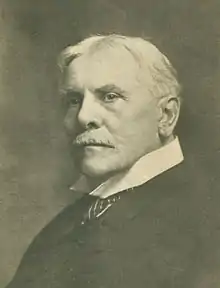



.jpg.webp)





